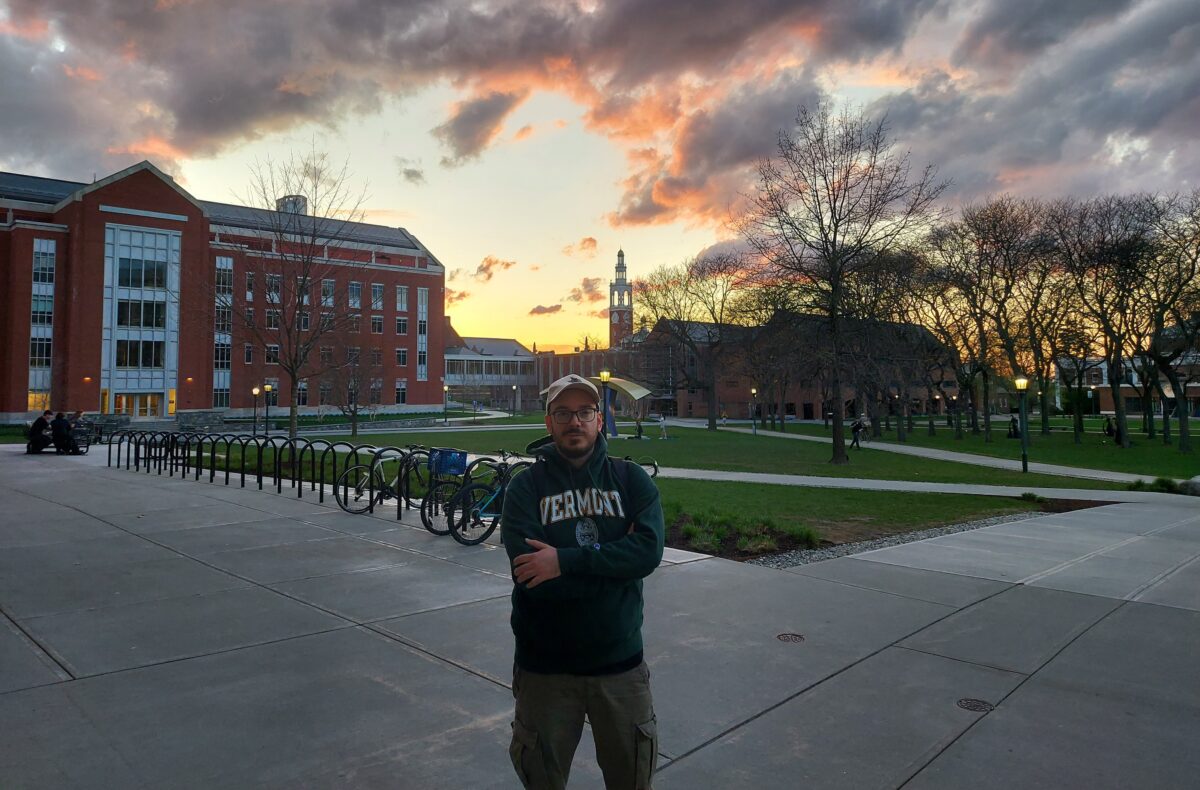Alexandros Tataridas was a Greek 2024-25 Fulbright Schuman Research Scholar at the University of Vermont. Dr. Tataridas is a researcher currently working as Assistant Researcher at the University of Coimbra in Portugal on the topics of agroecology, sustainable crop production and food consumption, and agroecological weed management. He holds a PhD in Agronomy and Weed Science from the Agricultural University of Athens in Greece.
Q: “Can you briefly describe your grant project?”
My research at the Institute for Agroecology at the University of Vermont was part of my project titled USE-AGROECOLOGY (USA-Europe bridges for Agroecology). During my visit, I had the opportunity to exchange knowledge on agroecological practices and challenges with researchers and farmers from Northeastern U.S.A., obtain hands-on practical experience on participatory approaches and social analyses, and establish synergies and build bridges between U.S.A. and Europe for agroecology and future joint initiatives. As part of my project, I conducted interviews to identify the similarities and differences between the US and EU agricultural sectors, feeding the development of tailor-made policy recommendations to mainstream agroecology.
Q: “How did you initially learn about the Fulbright Schuman Program, and what motivated you to apply?”
I was already familiar with the Fulbright Program and had long been seeking an opportunity to travel to the U.S. and collaborate with the Institute for Agroecology at the University of Vermont. Aware of the competitive nature of the Fulbright Schuman Program, I applied with determination, driven by the belief that the U.S. and the European Union, two Atlantic giants, have much to learn from each other in the pursuit of sustainable agri-food systems and in addressing our shared global challenges.
Q: “In what way is your specific field of research relevant to the transatlantic relationship?”
Agroecology is increasingly recognized as a promising field for exploring and co-creating solutions to reverse biodiversity loss, safeguard food security, and maintain agricultural and food competitiveness. The imperative to shift towards a more environmentally and socially responsible approach to agriculture resonates strongly on both continents, reflecting a shared aspiration of American and European societies.
Q: “What have you accomplished during your time in the USA? What can you tell us about the initial outcomes of your research?”
Interviews with researchers and farmers revealed a growing emphasis on quality over quantity, along with a shared recognition of the need to adopt good, clean, and fair practices within agri-food systems. My preliminary policy analysis indicated that the U.S. and Europe have strong potential to collaborate in advancing the transition toward sustainable agri-food systems, through deeper dialogue, mutual learning, and the construction of meaningful transatlantic bridges.
Q: “Has the United States been what you expected? In what ways has life in the USA surprised you, either for its similarities to or differences from your own culture?”
I traveled across four states in the Northeastern U.S., and I must admit that life there often surprised me, it was quite different from my own culture and, more broadly, from life in Europe. One thing that stood out was the energy you felt from people working efficiently, prioritizing food from local producers, and truly enjoying their weekends. A common thread across the Atlantic, however, is the clear contrast between urban and rural life. This remains strikingly familiar on both continents.
Q: “What has been your favorite “discovery” in the USA?”
After spending a couple of months in Vermont, one of the highlights for me was definitely the farmers’ markets and the way community-supported agriculture (CSA) is embraced and practiced there.
Q: “What will you do after your Fulbright grant? In what ways has your experience in the USA this year impacted your plans for the future?”
My Fulbright grant marked the beginning of a long-term collaboration with many researchers based in the U.S., and we’ve already started planning future joint initiatives. Being relatively close to New York, I was also fortunate to attend part of the STI Forum at the United Nations. This was a truly inspiring experience that reaffirmed my commitment to working at the science-policy interface.
Q: “As a Fulbright Schuman grantee, you have been a cultural ambassador not just for your home country but for the entirety of the European Union. Has this experience changed what it means to be “European” for you?”
I had the opportunity to travel to Brussels to give a short presentation hosted by DG-AGRI. Researchers and policy officers showed great interest in my experience in the U.S., as transatlantic synergies are increasingly valued. Being a European in the U.S. was particularly meaningful for me, it allowed me to experience both work and daily life through a European lens, offering unique insights into cultural and professional differences that can help shape future collaboration.
Q: “What advice would you give to someone who is considering applying to the Fulbright Program?”
Definitely go for it! Don’t let the competitive nature of the grant discourage you. Applying for a prestigious Fulbright grant is a life-changing opportunity.
Articles are written by Fulbright grantees and do not reflect the opinions of the Fulbright Commission, the grantees’ host institutions, or the U.S. Department of State.



